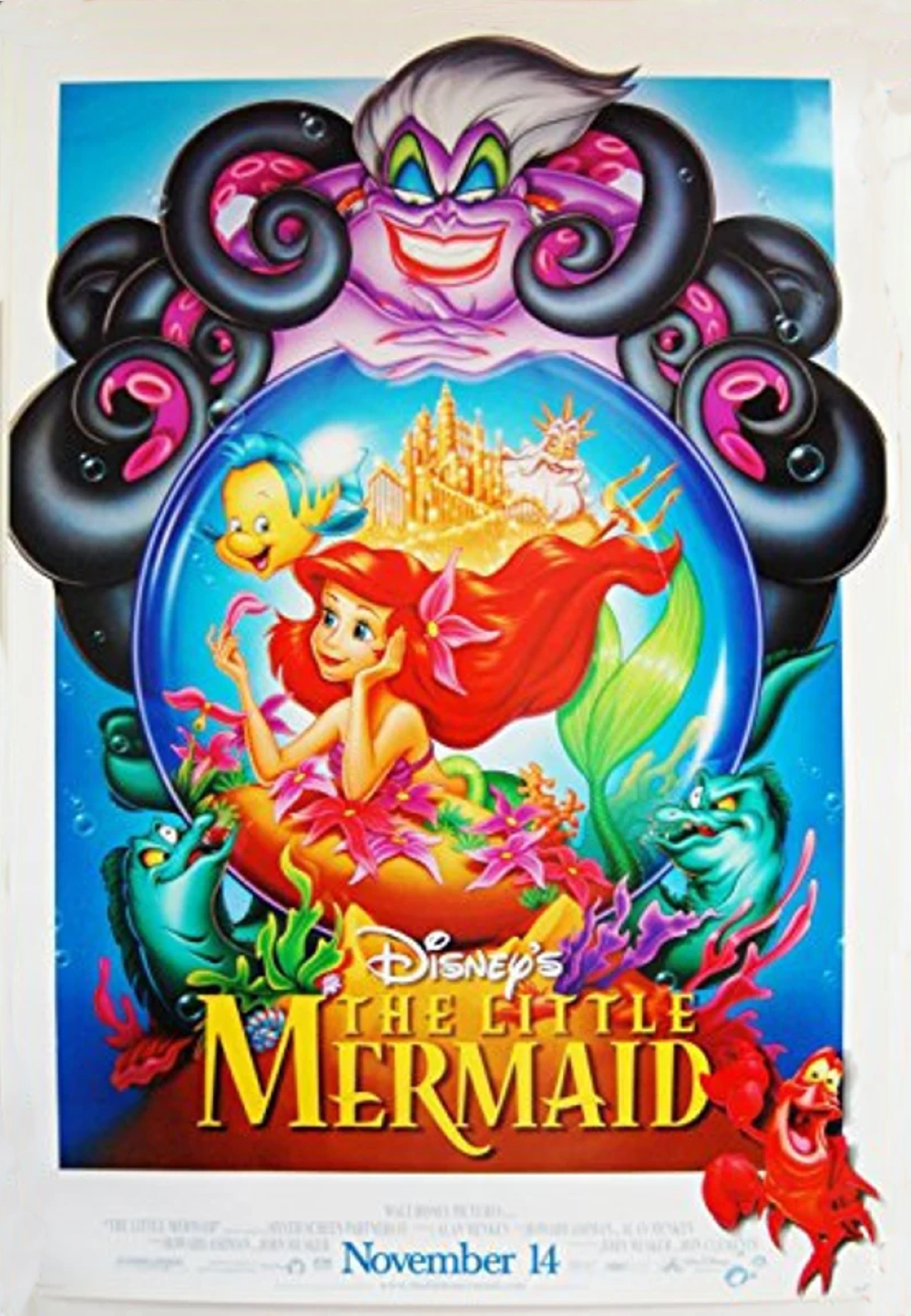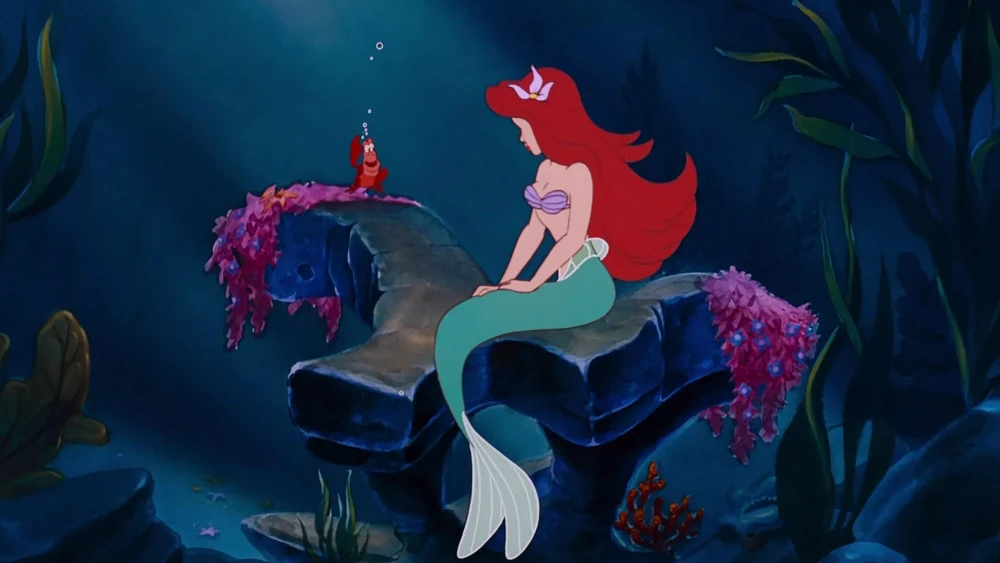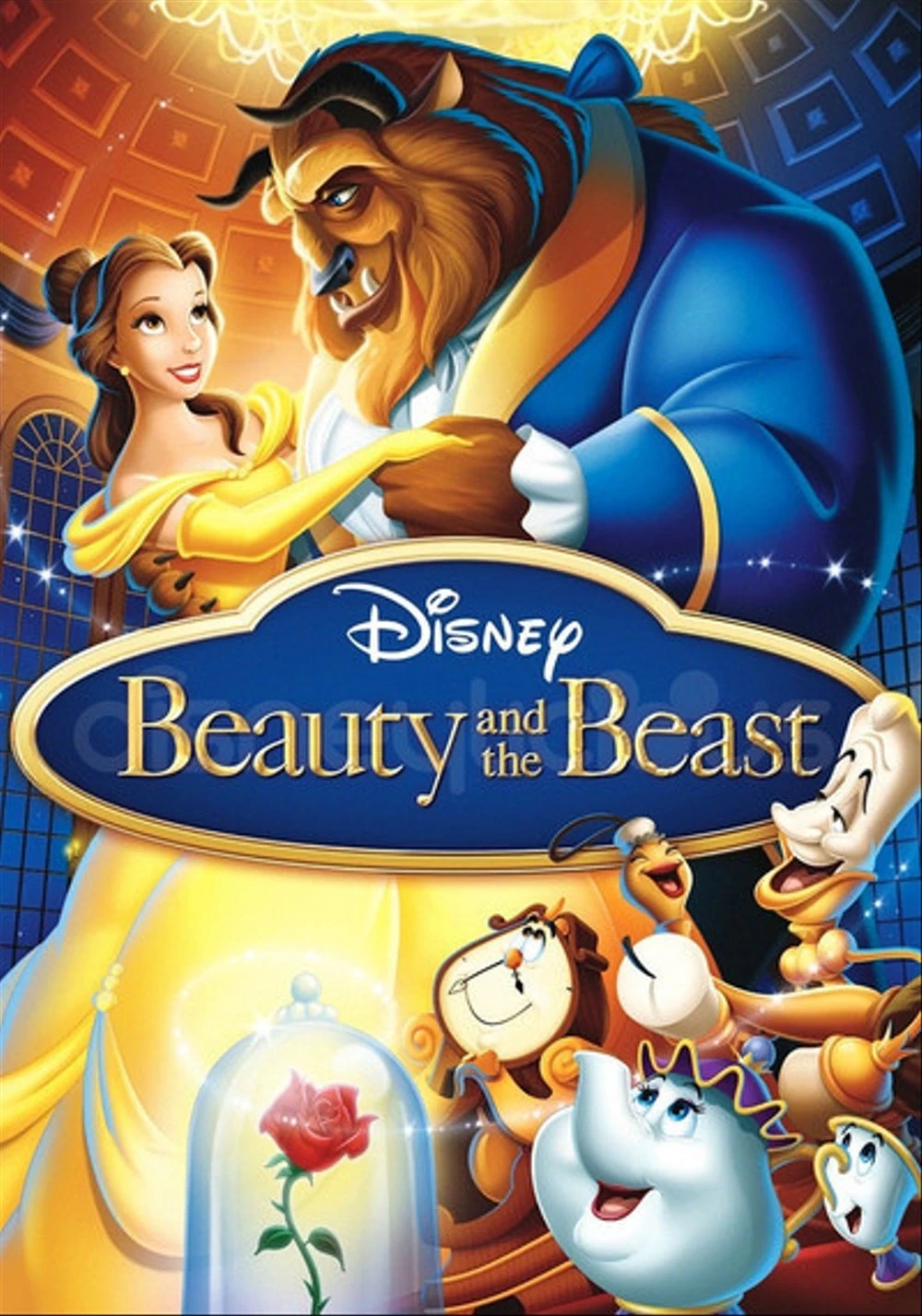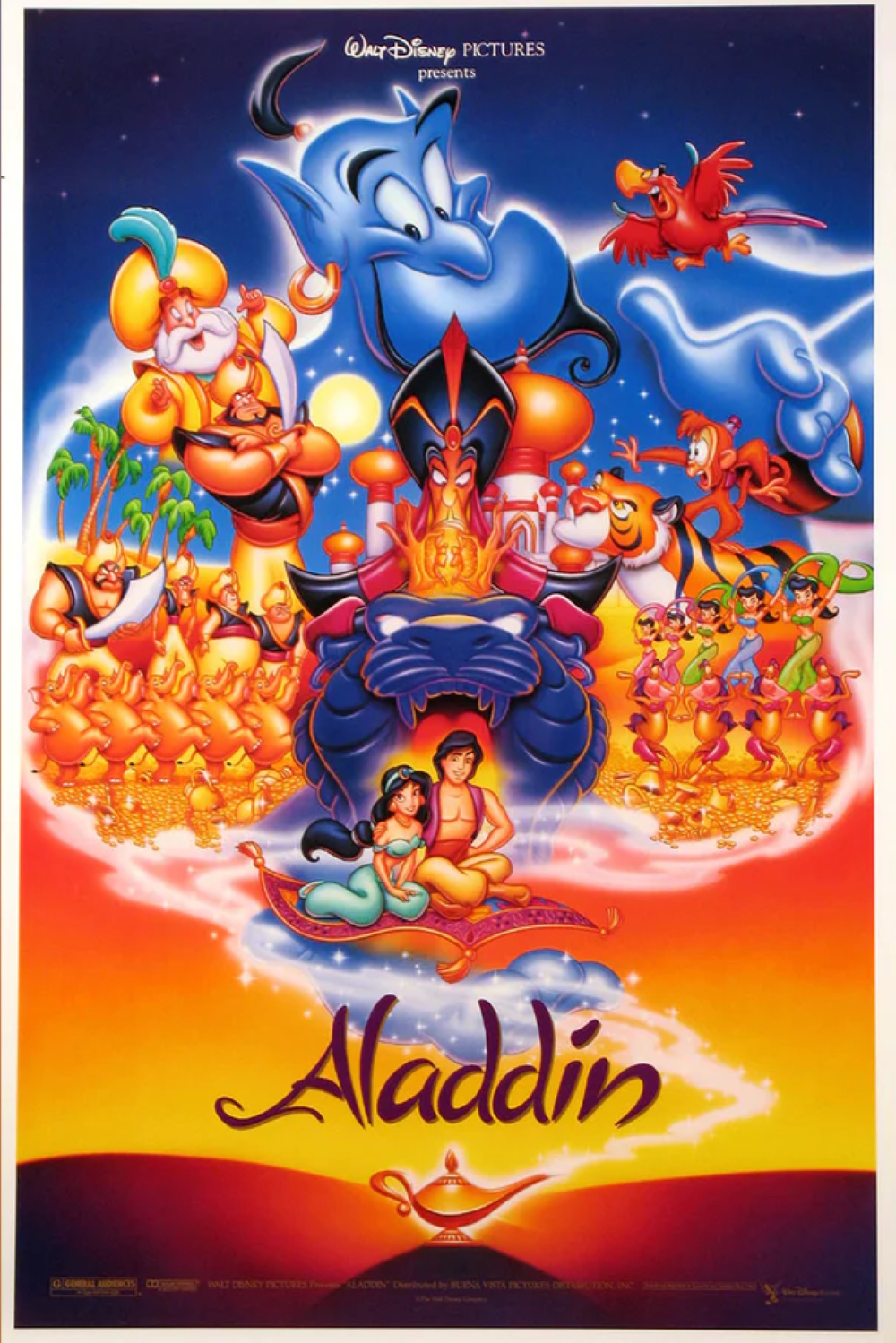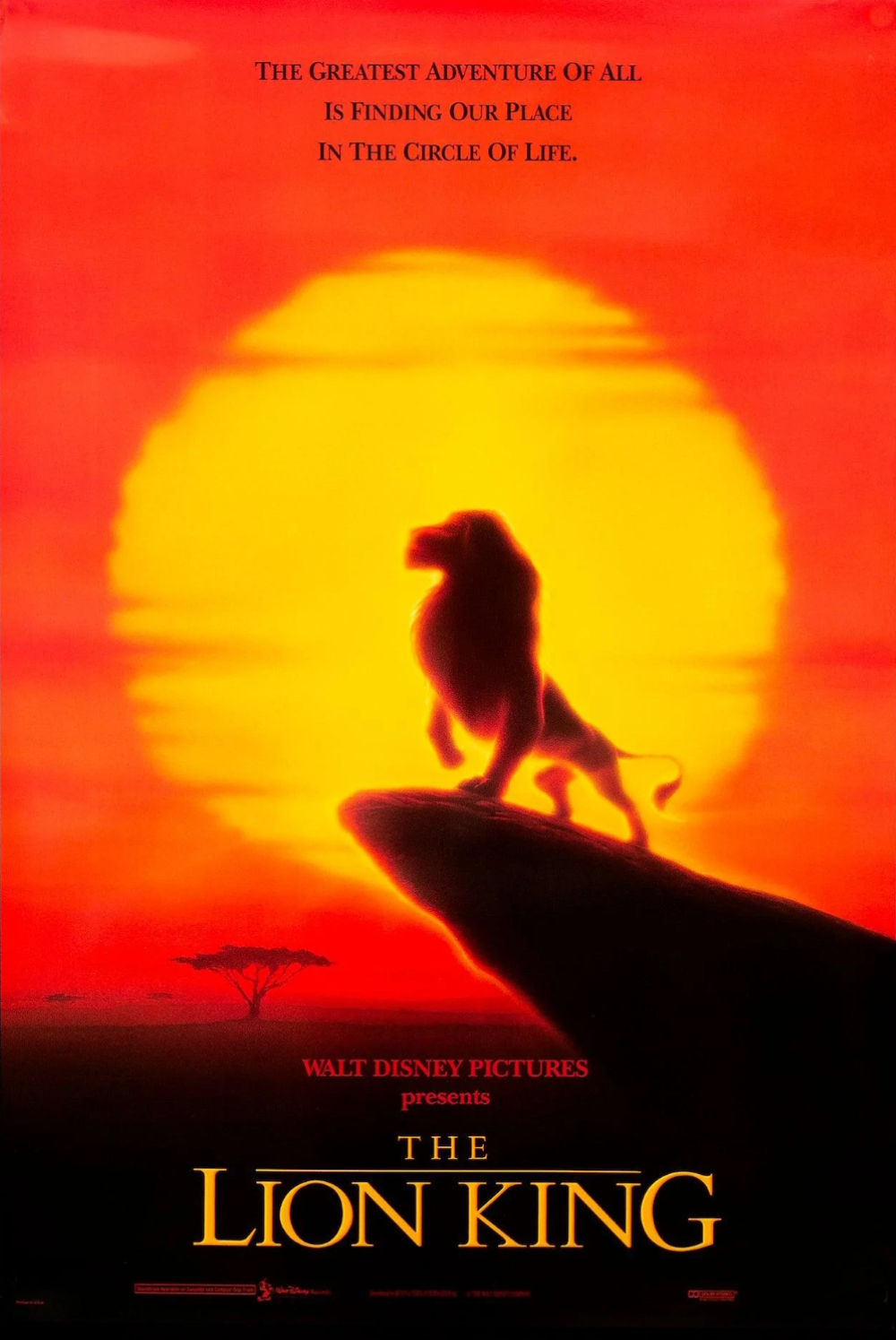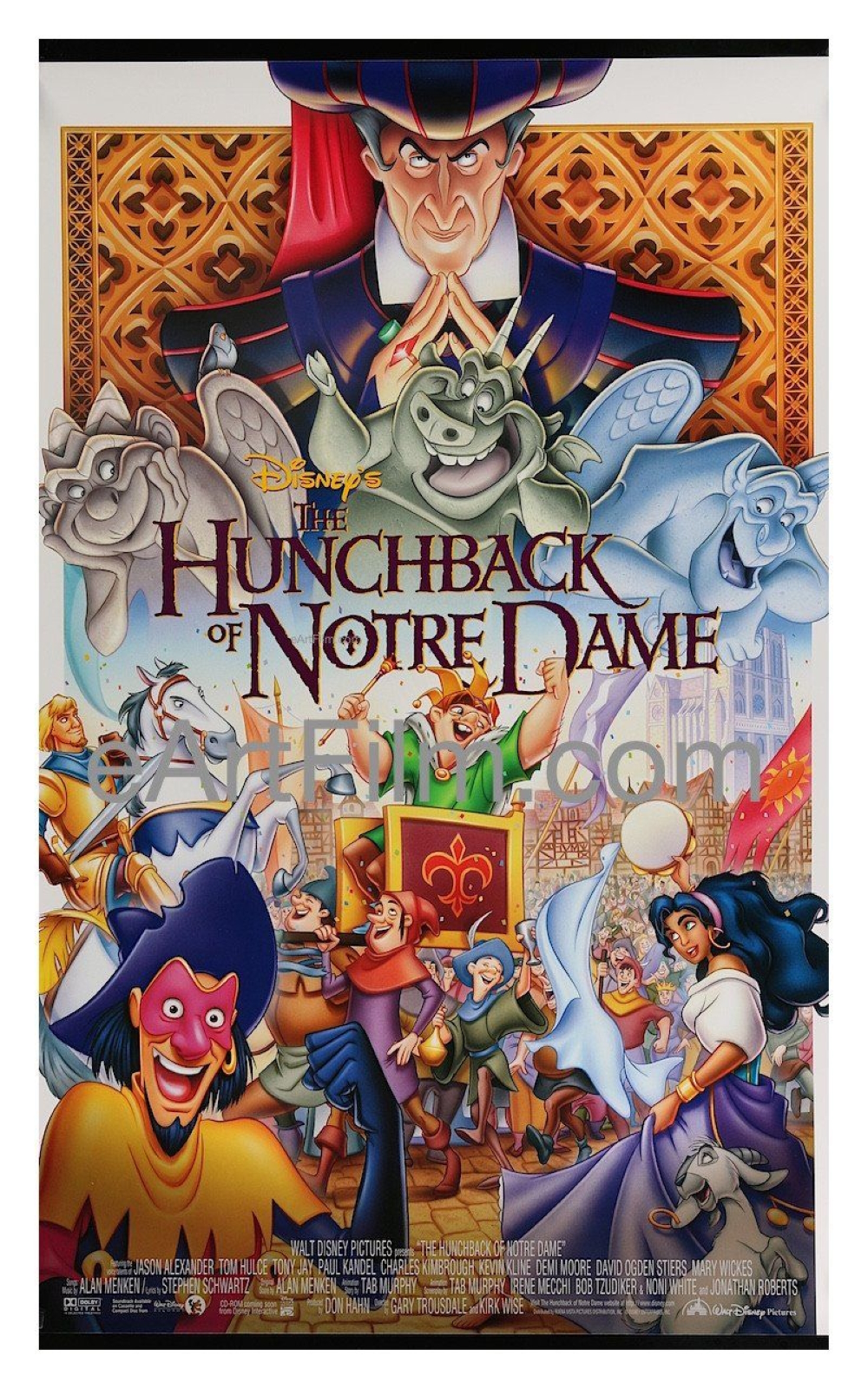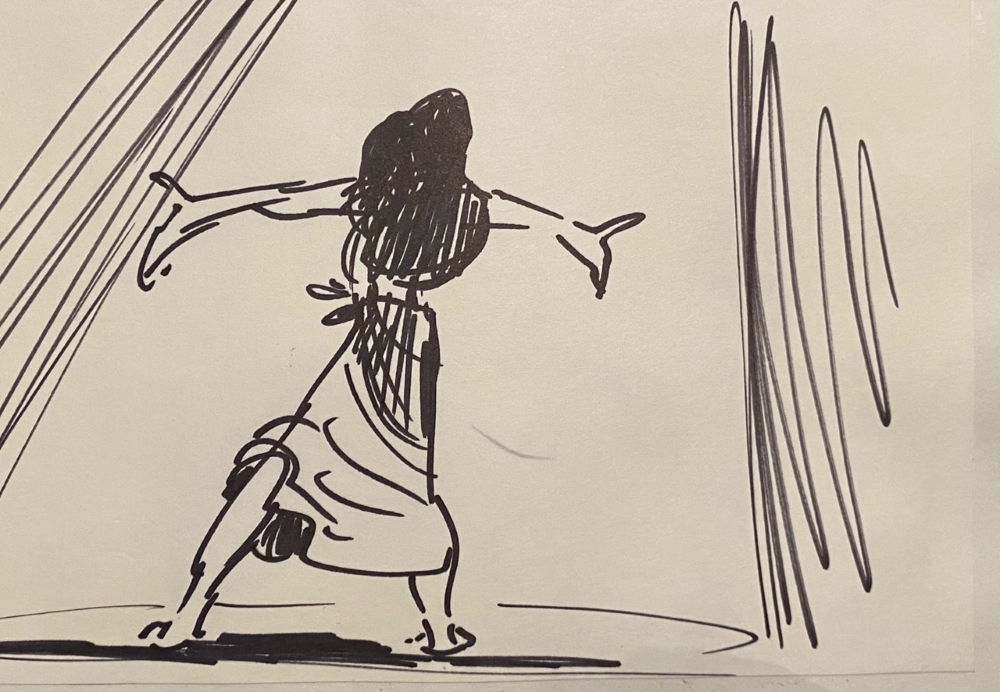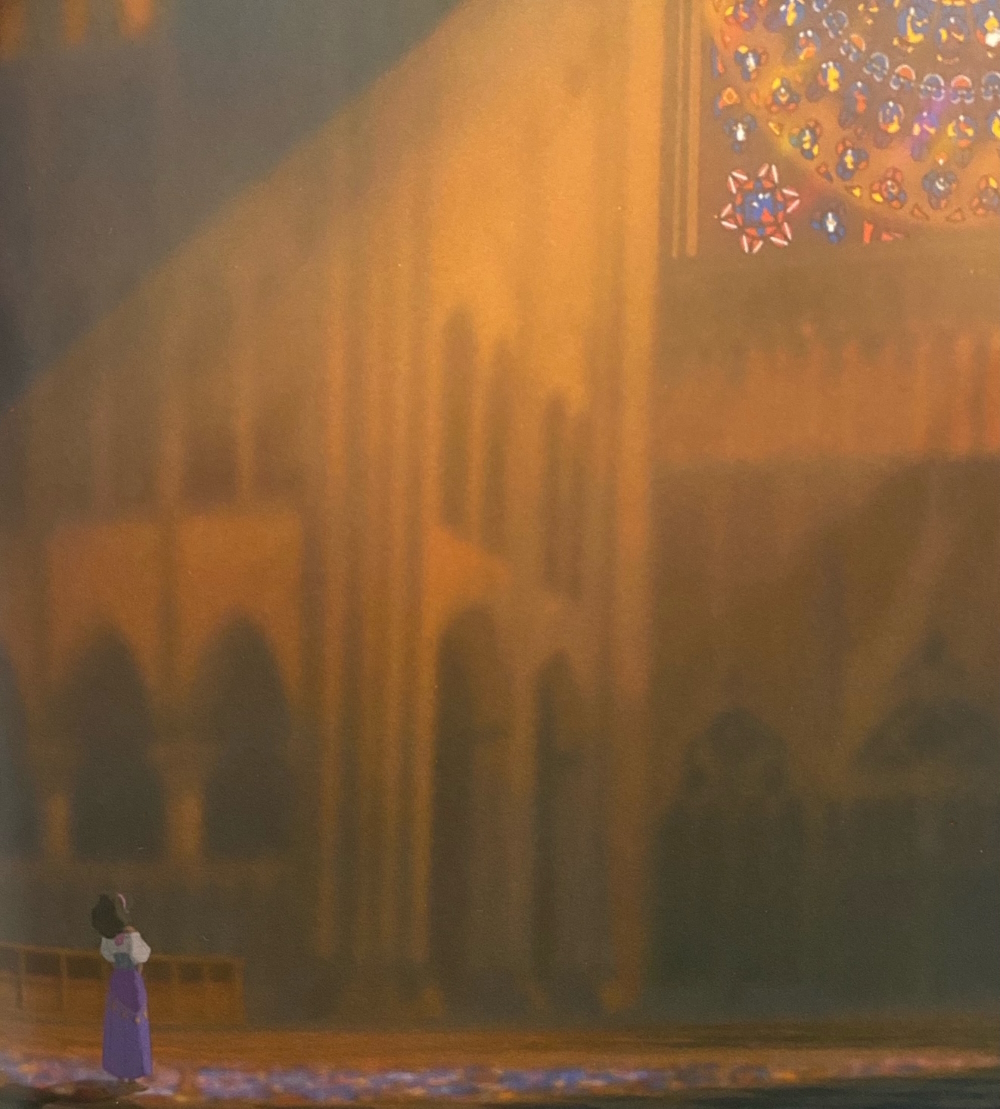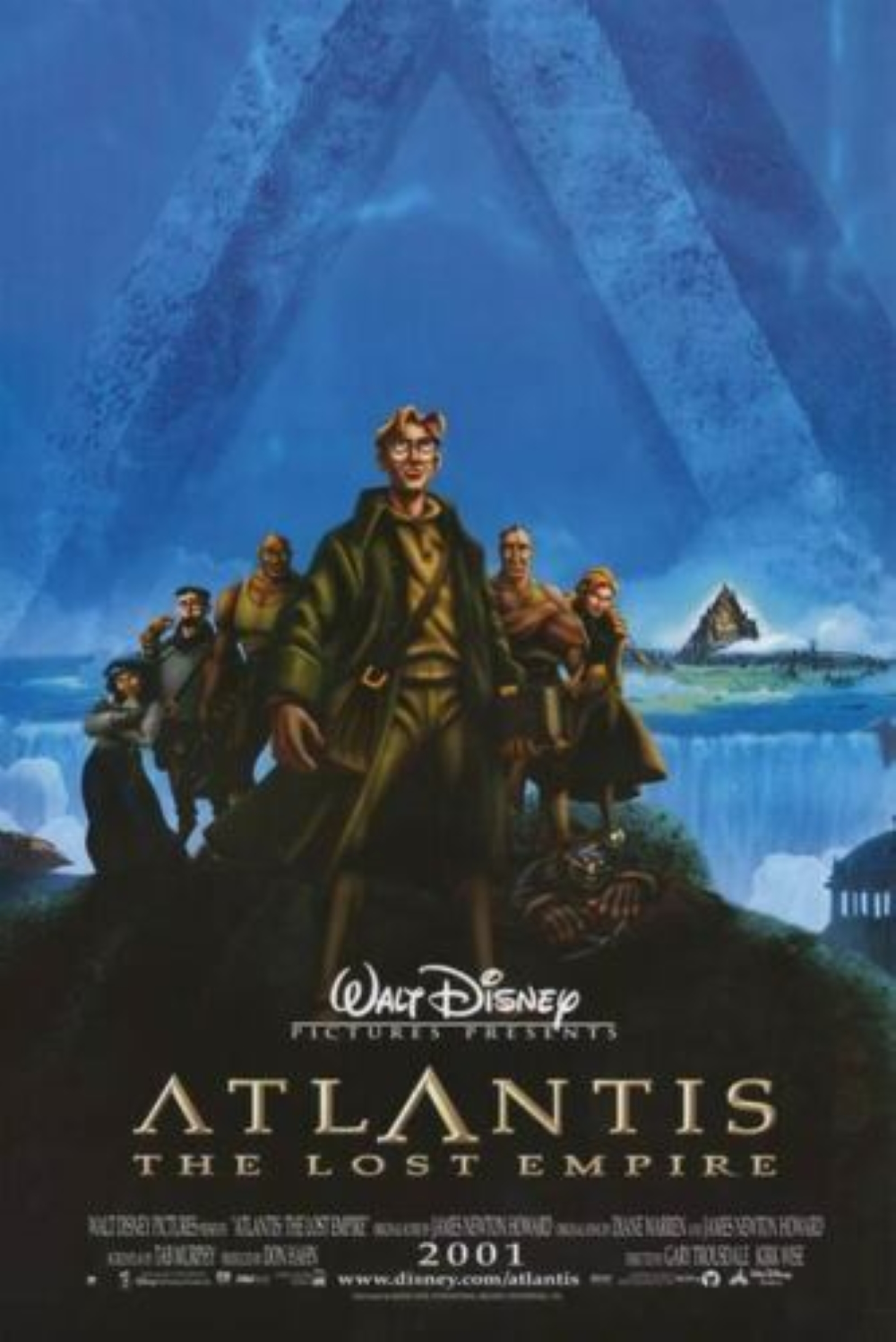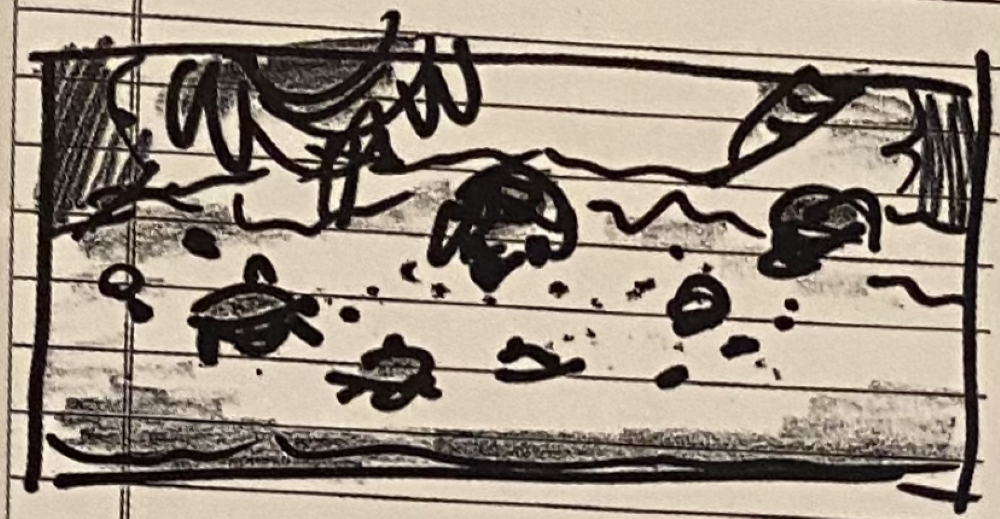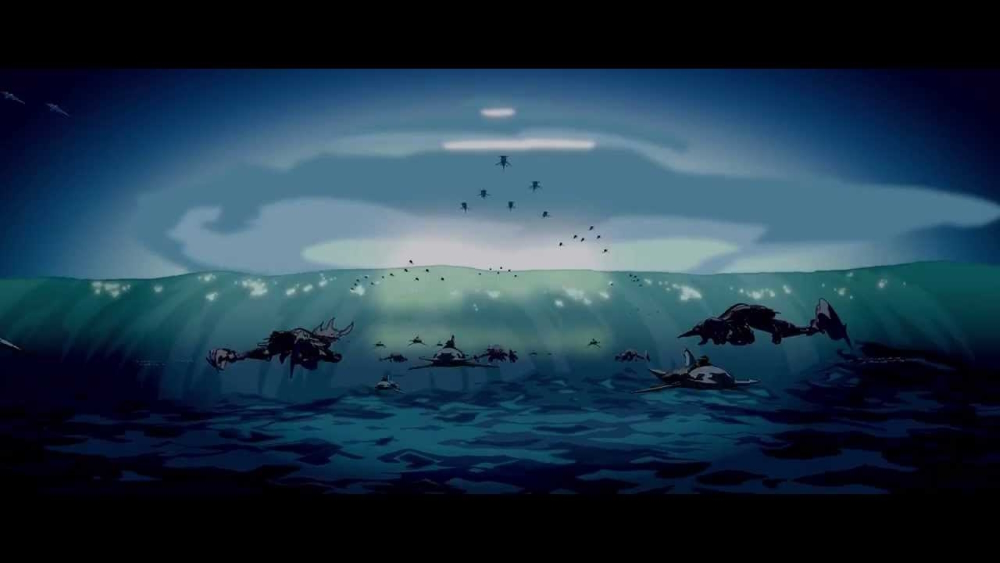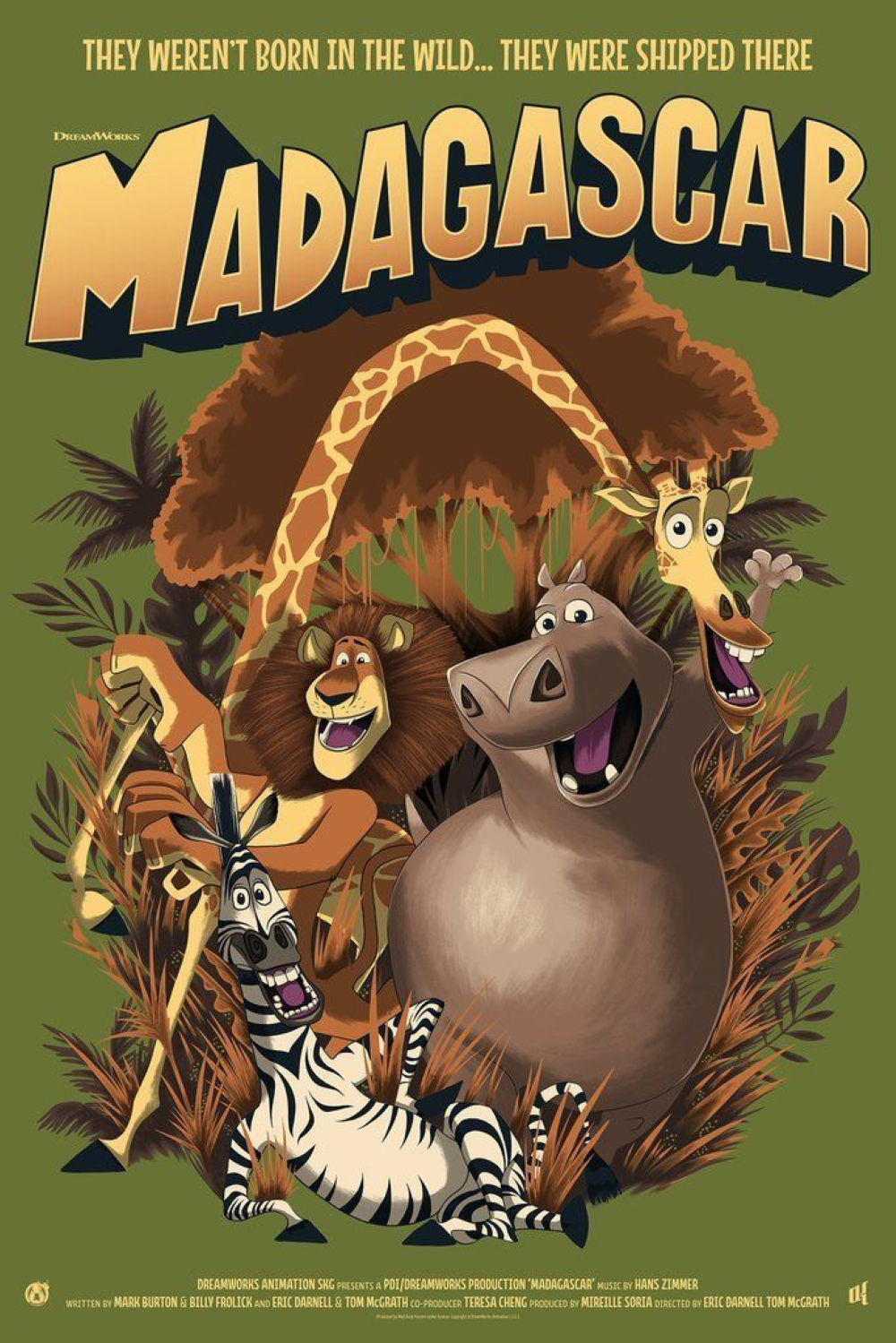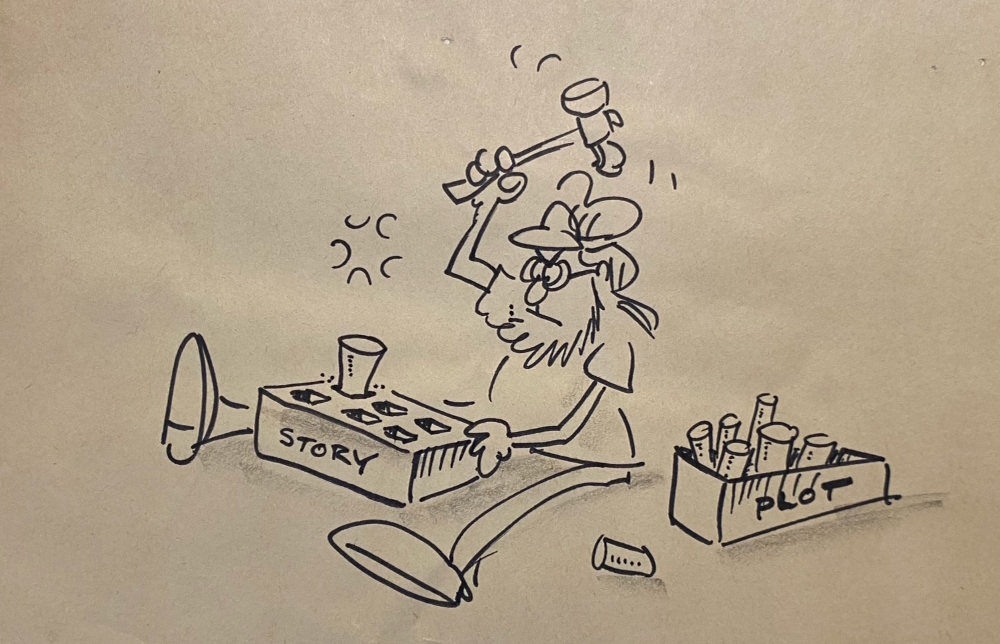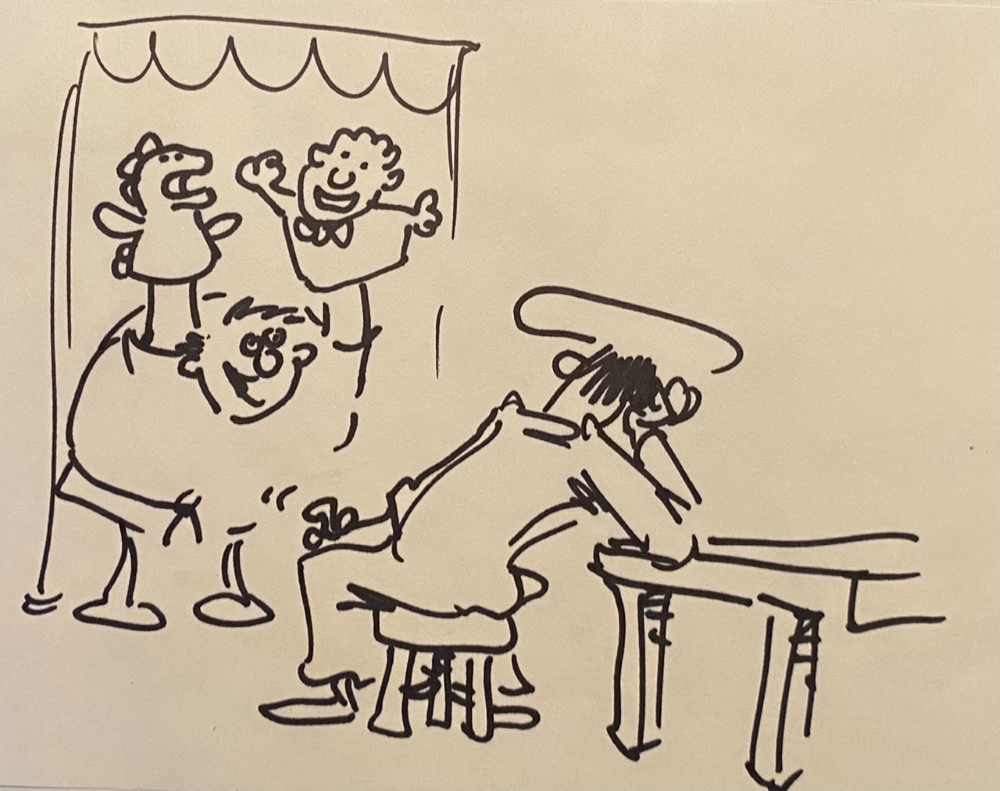Gary Allan Trousdale
(Beauty and the Beast) director / script writer / storyboard artist / effects animator / illustrator
US
‚The Little Mermaid‘. ‚Beauty and the Beast‘. ‚Aladdin‘. ‚The Lion King‘. ‚The Hunchback of Notre Dame‘. ‚Atlantis: The Lost Empire‘. ‚Madagascar‘. ‚Shrek the Halls‘. ‚Rocky and Bullwinkle‘. Kung Fu Panda: Unstoppable Awesomeness‘ and ‚The Emperor’s Quest‘. There’s very probably at least one of these blockbuster everybody has watched at one point or the other. As different as these movies might be storywise, they have a common link: in all of them one particular creative was involved - either as a storyboard artist, director or being responsible for the pre-production story developement respectively the story itself or the screenplay!
Gary Allan Trousdale
(Beauty and the Beast) director / script writer / storyboard artist / effects animator / illustrator
US
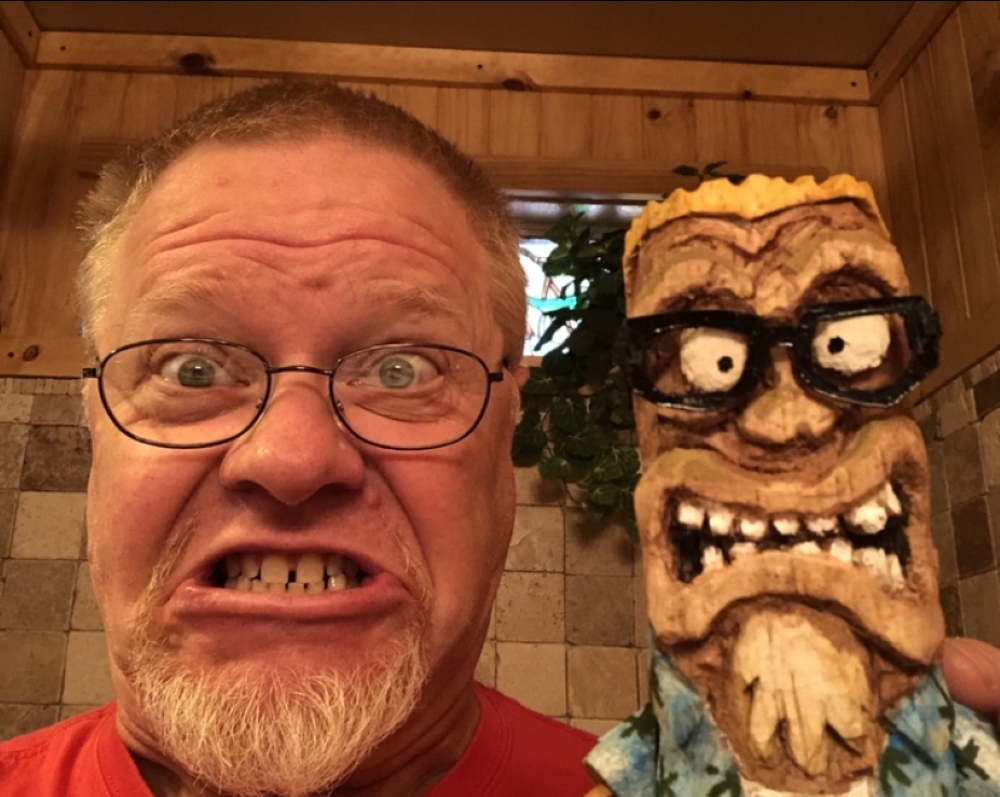
„The long and winding road“. This Beatles‘ classic is synonymous for the career of Gary Trousdale whose name nowdays is associated with success stories only. „His fascination with animation was fostered as a child, where he drew cartoons from an elementary school age“ (imdb.com). The Southern Californian (* 8 June 1960) visited Crescenta Valley High School in his hometown first and then Glendale College.
The plan to become an architect was dropped because of a severe lack of ability in mathematics in favour of studying animation for three years at CalArts. „The California Institute of the Arts is a private art university in Santa Clarita, California. It was incorporated in 1961 as the first degree-granting institution of higher learning in the US created specifically for students of both the visual and performing arts“ (Wikipedia).
One might think with such a fundamental background from a school that was staffed by a diverse array of professionals including Walt Disney might lead directly to the famous company of the latter, but that was not the case here. Instead Mr. Trousdale landed his first job in 1982 at Tom Carter Productions learning his trade by drawing storyboards and animations, followed by working for a small illustration studio designing restaurant menus and t-shirts.
Walt Disney Productions finally hired him in 1984 as an effects artist on ‚The Black Cauldron‘. „This American animated dark fantasy adventure is notable for being Disney's first animated feature film to incorporate computer-generated imaginery in its animation for bubbles, a boat, a floating orb of light, and the cauldron itself... The $44-million budget made it the most expensive animated film ever made at the time. The film grossed $21.3 million domestically. It resulted in a loss for Walt Disney Productions and put the future of the animation department in jeopardy (earning it the nickname "the film that almost killed Disney" (Wikipedia). No wonder that Gary Trousdale was always afraid at the time that the common „hire and fire“ might be come true for him. „But a series of in-house effects jobs kept him at Disney until his jokey cartoons, and a recommendation from (colleague) Joe Ranft, helped boost him into Disney Feature Animation’s story department“ (imdb.com). That secured him further employment on ‚Oliver & Company` (story), ‚The Little Mermaid‘ (story)‚ ‚The Prince and the Pauper‘ (storyboard artist), and 'The Rescuers Down Under‘ (storyboard artist).
By serendipity that the original directors of ‚Beauty and the Beast‘ had left the project he and his longtime cooperation-partner Kirk Wise became official directors of what is animation history. The 1991 American animated musical romantic fantasy film was even nominated for an Academy Award for Best Picture!
In the years to come Gary Trousdale worked on blockbusters like ‚Aladdin‘ (pre-production story development), ‚The Lion King‘ (story), ‚Toy Story‘ (screenplay), ‘The Hunchback of Notre Dame‘ (director) or ‚Atlantis: The Lost Empire‘ (director) to name just a few. 2003 saw him moving to DreamWorks Animation, where he worked on projects like ‚Madagascar‘‚ ‚Shrek the Halls‘ and ‚Scared Shrekless‘. He left Dreamworks in 2019, and is presently in consultation with numerous other studios.
Up until now Gary Trousdale is always up for a joke. He returned the questionnaire with a remark that was kind of shocking at first sight: „my answers in italics“. And at the button of his mails there’s a funny quote by legendary American comedian, actor, writer Groucho Marx: "Outside of a dog, a book is man's best friend. Inside of a dog, it's too dark to read."
Gary Trousdale lives in Lake Arrowhead, California (US).
Interview March 2023
A childhood dream works: drawing with a light pen isn‘t easy – even at Disney’s & Co.!
INTUITION/IMAGINATION
How does intuition present itself to you – in form of a suspicious impression, a spontaneous visualisation or whatever - maybe in dreams?
I don’t think intuition comes and goes...it’s just there or it’s not. I don’t ever feel it “turning on”. Hard to explain. I know a really great artist, and he has a bit of difficulty teaching how to do what he does. Instead of trying to dissect his own mind, he ends up saying things like “Well, I use a #6 black Prismacolor and then pull out highlights with the kneaded eraser...” It’s kind of like that. It seems like it’s just baked in and not taught.
Will any ideas be written down immediately and archived?
Oh sure. Honestly, I don’t do this enough. But it’s a technique that works (most of the time). I’ve done it before and recommend the practice.
?: How do you come up with good or extraordinary ideas?
If I’m starting a project from scratch and need ideas, I generally have to figure out what my parameters are (something about Christmas? Something scary? For a drawing? A movie? A set? A build of some sort?) Just a general guideline. Then I usually have to give it a few days to soak, to stew around in my brain while I DON’T consciously work on it. It’s in there, and after a bit, I can sit down the ideas that were gestating in there start hatching.
?: Do you feel that new creative ideas come as a whole or do you get like a little seed of inspiration that evolves into something else and has to be realized by endless trials and errors in form of constant developments up until the final result?
Both. Sometimes (rarely, I’ll admit) it happens that a whole idea will jump out. A lot more often, I’ll have to work and re-work ideas. When I was doing storyboards for Disney, the ratio of thrown out drawings to drawings I would keep and pin to the board was about 6:1.
What if there is a deadline, but no intuition? Does the first fuel the latter maybe?
Oh hell, yes. There’s nothing like pressure to light a fire under you. You probably won’t get great ideas right away, but kick-starting can be effective. Just know that it’s highly likely that you’ll have to go in for fixes later. High pressure unformed ideas are by definition not very well thought out, but it’s a way to start.
INSPIRATION
What inspires you and how do you stimulate this special form of imaginativeness?
What inspires me? It could be anything. There are specific inspirations I have: certain artists, books, cartoons, music, whatever, but inspiration has a way of sneaking up on you also. All of a sudden, ideas can spring from watching your cat or seeing fog blow through the trees or a bad joke you’ve heard. You just have to be ready for it...you can’t MAKE inspiration; you just have to be able to recognize it.
?: How do you filter between ideas worthwhile pursuing and bad ones that you just let go of?
Sometimes, all it takes is a few minutes of thought or tinkering. Or bouncing the idea off of a colleague. That usually can separate the wheat from the chaff, but it’s no guarantee. Having the time to do this is key...you mentioned deadlines earlier, and rushed schedules often allow bad or mediocre ideas to slip through.
Has it to appeal to you primarily or is its commercial potential an essential factor?
Depends on the idea/project. If I’m doing something strictly for myself, then of course it has to appeal to me. But ANY commercial art (commissioned drawing or painting, script, book, musical composition, etc.) will have input from a client who is paying for it. It still has to appeal to me on some level, though...I’ve been fortunate that I haven’t had to shit out terrible work to please some market research board or the spoiled kid of some CEO.
Do you revisit old ideas or check what colleagues/competitors are up to at times?
Yes and yes. Sometimes ideas are born before they’re ready. And if for no other reason than to make sure you’re not duplicating someone else’s work, it’s a good idea to be aware of what’s going on outside your own sphere.
CREATIVITY
Which time/place/environment suits your creative work process the best (tranquillity or pressure) and which path do you take from theory/idea to creation?
I want to say tranquility, but honestly, I sometimes need the pressure. I could sit and spin my wheels and explore zillions of options if I had all the time in the world, but this is where pressure and deadlines come in handy. It’s really tempting to just keep working and reworking and fixing to get to “perfect”, so having a deadline can help with focus and time management.
What is better in the realization process: speed and force creativity i.e. grasp the magic of the moment, or a slow, ripening process for implementation/elaboration?
Hey, I’ll take either one, whichever one works and presents itself. Given a choice, though, the “magic of the moment” is my preference, with a LITTLE bit of time to work with the idea. If the process is too slow and noodly, an idea can get “fixed” to death. (see previous comment)
?: Do you have any specific strategies you use when you are feeling stuck creatively?
Time is usually what does it for me. When the food is cooked solidly onto the sides of the pan and you can’t get it off, you let it soak for a while. A day or three usually does the trick. If I don’t have that kind of time, a three or four mile walk in the woods often does wonders. Just kind of zen out and clear the head to make room for the ideas you want.
How important are self-doubt and criticism (by others) during such a process i.e. is it better to be creative on your own, only trust your own instincts, or in a team?
As much as I don’t like criticism, I recognize that it’s often really valuable and useful. All of my major projects have been collaborations, and again, sometimes a lot of voices can be frustrating, but in the end I am always grateful. And self-doubt, or imposter syndrome, is always lurking. I guess it all spurs us on to do the best we can...and then top it.
Should a creative always remain true to him-/herself including taking risks & going against the flow or must one, for reasons of (commercial) survival, make concessions to the demands of the market, the wishes of clients and the audience’s expectations?
If you are working in the film industry, it’s exceptionally rare to be able to be entirely “true to yourself” and go against the flow if you want to remain employed...it’s corporate art, like it or not, and compromises have to be made. Even greats like Guillermo del Toro are not 100% free and have rejections and compromises to make, but he’s most likely as close to complete autonomy as anyone will come. It’s a swell idea to be able to puff out your chest and proclaim “I WON’T COMPROMISE! I WILL BE TRUE TO MYSELF AND MY ART!!”...but unless you’re independently wealthy, you’ll have to make those concessions.
?: How is innovation still possible if one has established a distinctive style and, just in case, is it good to be ahead of one’s time even one hazards not being understood?
How is change possible? I guess it’s possible if you WANT it to be possible. If you recognize that a change is desired for whatever reason, that’s the first step. And I guess it depends on your versatility as well.
I suppose it’s good to be ahead of the curve, as long as you’re still alive when everyone else catches up and finally recognizes it. That’s kind of a selfish answer, I know, but what the hell. I don’t produce what I produce for my own amusement...I want others to enjoy it, too, and it’s more fun for me if I can SEE them enjoy it.
When does the time come to end the creative process, to be content and set the final result free - or is it work-in-progress with an endless possibility of improvement?
When working in the corporate world, whether it’s a commissioned painting, a comic strip, or for the film industry, that deadline is always there, and a lot of times you are NEVER content. “Just one more week! There’s a couple things I can do to improve/fit it so it will be better!” John Lasseter (film director, producer, screenwriter, animator, voice actor - 'Toy Story', 'Cars' etc.) has said “They call it a ‘release’ when a movie is done, because you have to let it go. Otherwise, you might keep it forever.”
?: In case of failure or - worse - a creativity crisis how do you get out of such a hole?
Take a break. Go to a museum. Go on a pub crawl with friends. Go to Hawaii. Go fishing. Get laid. Whatever it takes. Hopefully you might have other hobbies or activities that you can lose yourself in while you mentally regroup. I can’t imagine having to jam ahead straightaway with something else without taking at least a little break.
SUCCESS
?: “Success is the ability to go from one failure to another with no loss of enthusiasm.“ Do you agree with Winston Churchill’s quote?
Maybe that’s true for power-hungry politicians. I don’t agree with it. Success to me is bringing happiness to people I will never know or meet. Having a positive effect on a stranger’s life, and maybe never knowing what touched them, but knowing something good happened.
Should/can one resist the temptation to recycle a ‘formula’ one’s successful with?
Absolutely! Been there, done that. And instead of it being intimidating or scary, it’s liberating and fun.
?: Is it desirable to create the ultimate/timeless work, but doesn’t “top of the ladder” bring up the question of “what’s next?” i.e. isn’t such a personal peak “the end”?
Jesus, I hope not. People said our first movie was “the best ever”...and what the hell am I supposed to do with that? I mean sure, thanks, but I got more to do, and if I get to the top of the ladder, then I’m going to need a new bigger ladder. I ain’t dead yet, so I ain’t done neither. There’s always a higher mountain to climb.
MY FAVORITE WORK:
It’s hard to zero in on just one of my works that I think represents me best. Is it my doodles and cartoons that are kind of stream-of-consciousness silliness? One of my movies or shorts? Which one? The countless toy “pinewood derby” racecars I’ve made? Scripts? What about the Haunted House I do for Halloween every year? All of these things represent me in some way or another, I am proud of all of them, and I can’t say one is better or more legitimate than another. Beauty and the Beast was a big deal in a lot of ways, but I can’t claim it as exclusively mine...there was a core team I leaned on a lot and a production team that did the grunt work. Sure, I’d love to say it represents me, but it was a huge collaboration. I am asked all the time “Which of your movies or shows is your favorite?” and I honestly can’t answer. Atlantis the Lost Empire was immensely satisfying to make, very different from the two previous musicals, but I loved them too. Rocky and Bullwinkle was a blast...I got to return to my love of animated shorts with a loving adaptation of a classic. It’s like asking “which of your children do you love the most?” I love them all the most, for different reasons.
